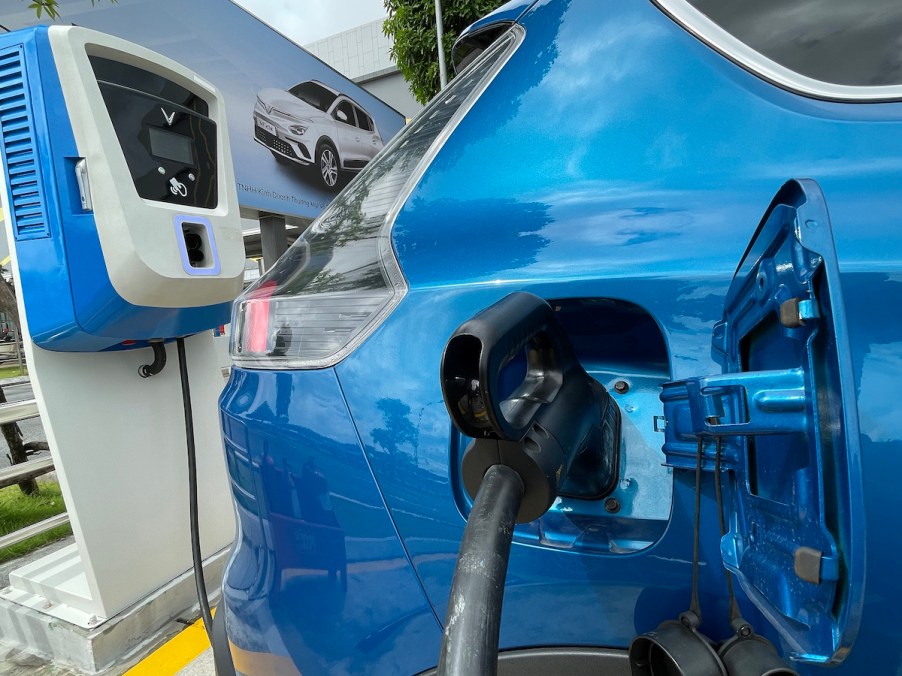
Buying a Hybrid or EV: 4 Considerations to Remember Before Buying
Car buying can be a complicated and challenging process. This is true whether you’re buying a gas-powered car, a hybrid, or an EV. Like with typical gas-powered cars, some folks may choose to go with a used hybrid or EV to save money. However, folks who go this route should keep a few things in mind. Here’s a look at four considerations car shoppers should remember before buying a hybrid or EV.
1. Hybrids and EVs are cutting edge, and the tech is rapidly evolving

EVs are the next generation of cars, but many modern EVs, such as Teslas, constantly try to be as futuristic as possible. That’s why so many EVs come with big touch screens, semi-autonomous self-driving features such as Tesla’s Autopilot or GM’s Super Cruise, and interior and exterior designs that look sleek and futuristic.
But like Erie Insurance wrote, EVs and hybrids are at the cutting edge of car tech is not always a good thing. This is especially true for those shopping for a used version of the car. Because EV automakers add or upgrade so many features in their cars, an EV that’s a few years old can be massively different than the same car model but in the current model year.
In particular, advancements in range tech for EVs may mean that a brand-new EV has much more range than an older EV of the same model. Hybrids don’t have to deal with this much, but it can still be a factor. This is especially true for advanced safety features, as automakers have steadily added more of those features to their cars as the years have gone by.
2. Peace of mind is necessary
People need peace of mind when they’re shopping for a used option. They deserve to know who used the car and where it has been.
For new EVs or hybrids, peace of mind means having a good range. If a car shopper can’t find an EV with a long enough range, they can still consider a hybrid, which gets the best of both powertrains.
3. Depreciation can take a big hit on the car
And just like gas-powered cars, EVs and hybrids can lose a lot of value over time simply due to depreciation. Not only that, but EVs depreciate faster than gas-powered cars will.
An EV depreciating faster isn’t as scary as it sounds. All cars depreciate, but what pushes EVs over the edge is that government incentives are available. Those incentives knock down the EV’s value, making them worth less when the owner wants to sell.
4. Reliability is still a concern for hybrids and EVs
Another thing EV and hybrid shoppers have to consider is reliability. While EVs are simpler and require less maintenance than gas-powered cars, EVs can still suffer from reliability issues. This is especially true for certain automakers, such as Tesla, whose cars have some poor reliability scores.
On top of that, one of the most important components of an EV or hybrid is its battery pack. Some cars will have an unreliable or defective battery pack, and it’s important for car shoppers to do their research to make sure that their choice has a good and reliable battery.


